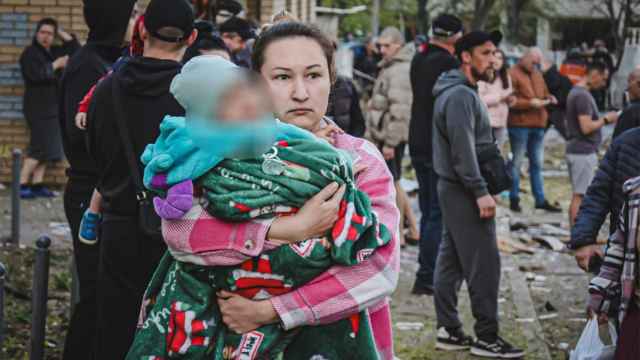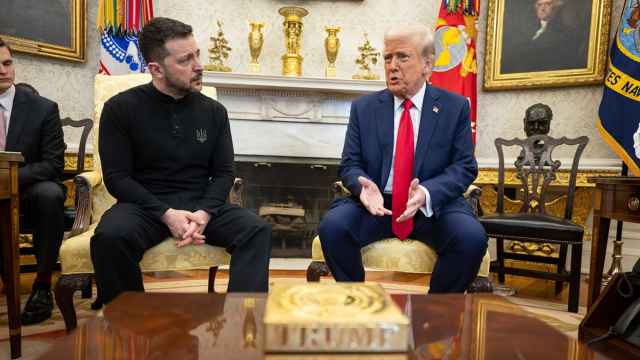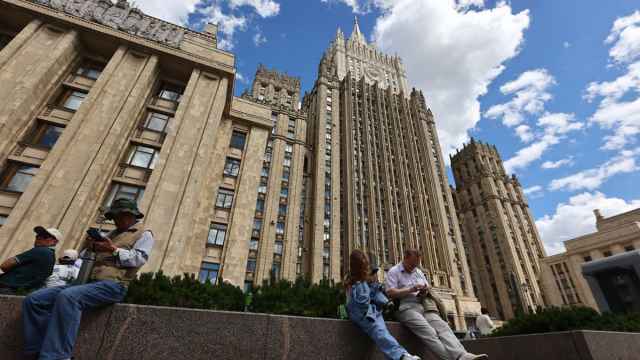| About this blog
|
| Window on Eurasia covers current events in Russia and the nations of the former Soviet Union, with a focus on issues of ethnicity and religion. The issues covered are often not those written about on the front pages of newspapers. Instead, the articles in the Windows series focus on those issues that either have not been much discussed or provide an approach to stories that have been. Frequent topics include civil rights, radicalism, Russian Islam, the Russian Orthodox Church, and events in the North Caucasus, among others.
Author Paul Goble is a longtime specialist on ethnic and religious questions in Eurasia. Most recently, he was director of research and publications at the Azerbaijan Diplomatic Academy. He has served in various capacities in the U.S. State Department, the Central Intelligence Agency and the International Broadcasting Bureau as well as at the Voice of America and Radio Free Europe/Radio Liberty and at the Carnegie Endowment for International Peace. He writes frequently on ethnic and religious issues and has edited five volumes on ethnicity and religion in the former Soviet space. |
This remarkable action surfaced this week when radical Moscow commentator Valeriya Novodvorskaya reported in her Grani.ru column that one of the organizers, who she indicated had to remain anonymous for obvious reasons, had approached her to ask to whom he should forward their appeal.
Novodvorskaya said she advised him to "send the signatures to the Japanese emperor," for whom they could serve as "compensation" for the harm that Japan has experienced at Russia's hands given Moscow's continuing unwillingness ever to return the four islands Soviet forces seized at the end of World War II.
The columnist pointed out that "typically, supporters of a powerful state of the junior-officer level point to Japan's role in World War II as an aggressor and the seizure of islands from her as a form of punishment. But if this is so," Novodvorskaya says, then she "knows another country that unleashed the Second World War and thus should be considered an aggressor too."
That country is "our Russia," which despite that managed to seize not only a small group of islands but also "a good chunk of Poland in the form of Western Ukraine and Belarus and also Bessarabia &mdash that is, Moldova," areas that passed out of Moscow's "pirate hands" only after 1991 when those countries became independent.
But if those territories now are in the hands of others, the Grani columnist continued, another war prize Moscow took in is not: Vyborg. That was land Stalin seized from Finland during the Winter War, an action for which "the Soviet Union was excluded from the League of Nations! So why should Vyborg not be returned to Finland?"
These are not issues even Russian liberals have wanted to talk about, she says. Only Gennady Burbulis in the early 1990s was prepared to return the four islands to Japan, and after he was attacked by the nationalists and not defended by then-President Boris Yeltsin, no one else in that camp has shown much interest in taking the risk of backing the idea.
But in the near future, Novodvorskaya suggests, they and other Russians may have to face up to more demands of this kind. Many in Kaliningrad have "long been dreaming about their return to the world of the first European economy," and they have an organization that is pressing for it.
If Hitler and Stalin were each "half responsible" for the start of the war, she argued, then "why should Koenigsberg and the grave of Kant remain with [Russia] ? For the 'Philosopher boats'?" &mdash a reference to Lenin's expulsion by ship of the flower of the pre-1917 Russian intelligentsia in 1922.
Moreover, she wrote, the Far East routinely looks toward the U.S. and as this case showed even toward Japan, pointedly noting that in contrast, "Alaska is not thinking about joining the Russian Federation." The Caucasus is also looking for a way out, and it is even possible, she suggested, that people in Eastern and Western Siberia are thinking that way as well.
One indication that these are not entirely frivolous pursuits, she says, is that those considering leaving are to be found "in the holy of holies of the regime &mdash in the military and defense sector," where some senior officers, "not having received the apartments they were promised, sent a declaration to the U.S. saying they wanted to serve in the American army."
Thus, "the collection of signatures on Sakhalin is not a rarity. Soon they will begin to be collected in Moscow." And according to Novodvorskaya, just one thing remains: "to divide up the territory and people of Russia among the United States, Japan and the European Union" so that the Russian people will be able to live better.
As for Putin, Medvedev and the chekisty surrounding them, the outspoken Moscow commentator concluded, they and others like them should be put inside a special Moscow park limited to the territory of the Kremlin, the Lubyanka, and the White House "and then shown to tourists for a fee."
A Message from The Moscow Times:
Dear readers,
We are facing unprecedented challenges. Russia's Prosecutor General's Office has designated The Moscow Times as an "undesirable" organization, criminalizing our work and putting our staff at risk of prosecution. This follows our earlier unjust labeling as a "foreign agent."
These actions are direct attempts to silence independent journalism in Russia. The authorities claim our work "discredits the decisions of the Russian leadership." We see things differently: we strive to provide accurate, unbiased reporting on Russia.
We, the journalists of The Moscow Times, refuse to be silenced. But to continue our work, we need your help.
Your support, no matter how small, makes a world of difference. If you can, please support us monthly starting from just $2. It's quick to set up, and every contribution makes a significant impact.
By supporting The Moscow Times, you're defending open, independent journalism in the face of repression. Thank you for standing with us.
Remind me later.






